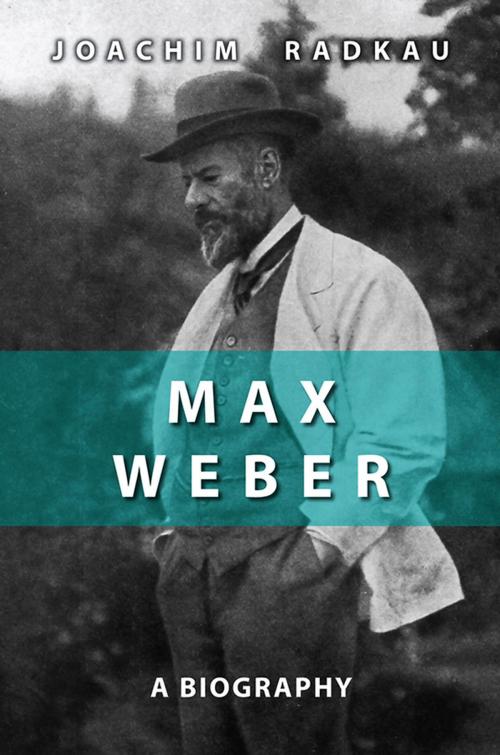| Author: | Joachim Radkau | ISBN: | 9780745683423 |
| Publisher: | Wiley | Publication: | October 29, 2013 |
| Imprint: | Polity | Language: | English |
| Author: | Joachim Radkau |
| ISBN: | 9780745683423 |
| Publisher: | Wiley |
| Publication: | October 29, 2013 |
| Imprint: | Polity |
| Language: | English |
Max Weber (1864-1920) is recognized throughout the world as the most important classic thinker in the social sciences – there is simply no one in the history of the social sciences who has been more influential. The affinity between capitalism and protestantism, the religious origins of the Western world, the force of charisma in religion as well as in politics, the all-embracing process of rationalization and the bureaucratic price of progress, the role of legitimacy and of violence as offsprings of leadership, the ‘disenchantment’ of the modern world together with the never-ending power of religion, the antagonistic relation between intellectualism and eroticism: all these are key concepts which attest to the enduring fascination of Weber’s thinking.
The tremendous influence exerted by Max Weber was due not only to the power of his ideas but also to the fact that behind his theories one perceived a man with a marked character and a tragic destiny. However, for nearly 80 years, our understanding of the life of Max Weber was dominated by the biography published in 1926 by his widow, Marianne Weber. The lack of a great Weber biography was one of the strangest and most glaring gaps in the literature of the social sciences. For various reasons the task was difficult; time and again, attempts to write a new biography of Max Weber ended in failure.
When Joachim Radkau’s biography appeared in Germany in 2005 it caused a sensation. Based on an abundance of previously unknown sources and richly embedded in the German history of the time, this is the first fully comprehensive biography of Max Weber ever to appear. Radkau brings out, in a way that no one has ever done before, the intimate interrelations between Weber’s thought and his life experience. He presents detailed revelations about the great enigmas of Weber’s life: his suffering and erotic experiences, his fears and his desires, his creative power and his methods of work as well as his religious experience and his relation to nature and to death. By understanding the great drama of his life, we discover a new Max Weber, until now unknown in many respects, and, at the same time, we gain a new appreciation of his work.
Joachim Radkau, born in 1943, is Professor of Modern History at the Bielefeld University, Germany. His interest in Max Weber dates back nearly forty years when he worked together with the German-American historian George W. F. Hallgarten (Washington), a refugee who left Germany in 1933 and who, as a student, listened to Weber’s last lecture in summer 1920. Radkau’s main works include Die deutsche Emigration in den USA (1971); Deutsche Industrie und Politik (together with G. W. F. Hallgarten, 1974), Aufstieg und Krise der deutschen Atomwirtschaft (1983), Technik in Deutschland (1989), Das Zeitalter der Nervosität (1998), Natur und Macht: Eine Weltgeschichte der Umwelt (2000).
Max Weber (1864-1920) is recognized throughout the world as the most important classic thinker in the social sciences – there is simply no one in the history of the social sciences who has been more influential. The affinity between capitalism and protestantism, the religious origins of the Western world, the force of charisma in religion as well as in politics, the all-embracing process of rationalization and the bureaucratic price of progress, the role of legitimacy and of violence as offsprings of leadership, the ‘disenchantment’ of the modern world together with the never-ending power of religion, the antagonistic relation between intellectualism and eroticism: all these are key concepts which attest to the enduring fascination of Weber’s thinking.
The tremendous influence exerted by Max Weber was due not only to the power of his ideas but also to the fact that behind his theories one perceived a man with a marked character and a tragic destiny. However, for nearly 80 years, our understanding of the life of Max Weber was dominated by the biography published in 1926 by his widow, Marianne Weber. The lack of a great Weber biography was one of the strangest and most glaring gaps in the literature of the social sciences. For various reasons the task was difficult; time and again, attempts to write a new biography of Max Weber ended in failure.
When Joachim Radkau’s biography appeared in Germany in 2005 it caused a sensation. Based on an abundance of previously unknown sources and richly embedded in the German history of the time, this is the first fully comprehensive biography of Max Weber ever to appear. Radkau brings out, in a way that no one has ever done before, the intimate interrelations between Weber’s thought and his life experience. He presents detailed revelations about the great enigmas of Weber’s life: his suffering and erotic experiences, his fears and his desires, his creative power and his methods of work as well as his religious experience and his relation to nature and to death. By understanding the great drama of his life, we discover a new Max Weber, until now unknown in many respects, and, at the same time, we gain a new appreciation of his work.
Joachim Radkau, born in 1943, is Professor of Modern History at the Bielefeld University, Germany. His interest in Max Weber dates back nearly forty years when he worked together with the German-American historian George W. F. Hallgarten (Washington), a refugee who left Germany in 1933 and who, as a student, listened to Weber’s last lecture in summer 1920. Radkau’s main works include Die deutsche Emigration in den USA (1971); Deutsche Industrie und Politik (together with G. W. F. Hallgarten, 1974), Aufstieg und Krise der deutschen Atomwirtschaft (1983), Technik in Deutschland (1989), Das Zeitalter der Nervosität (1998), Natur und Macht: Eine Weltgeschichte der Umwelt (2000).















